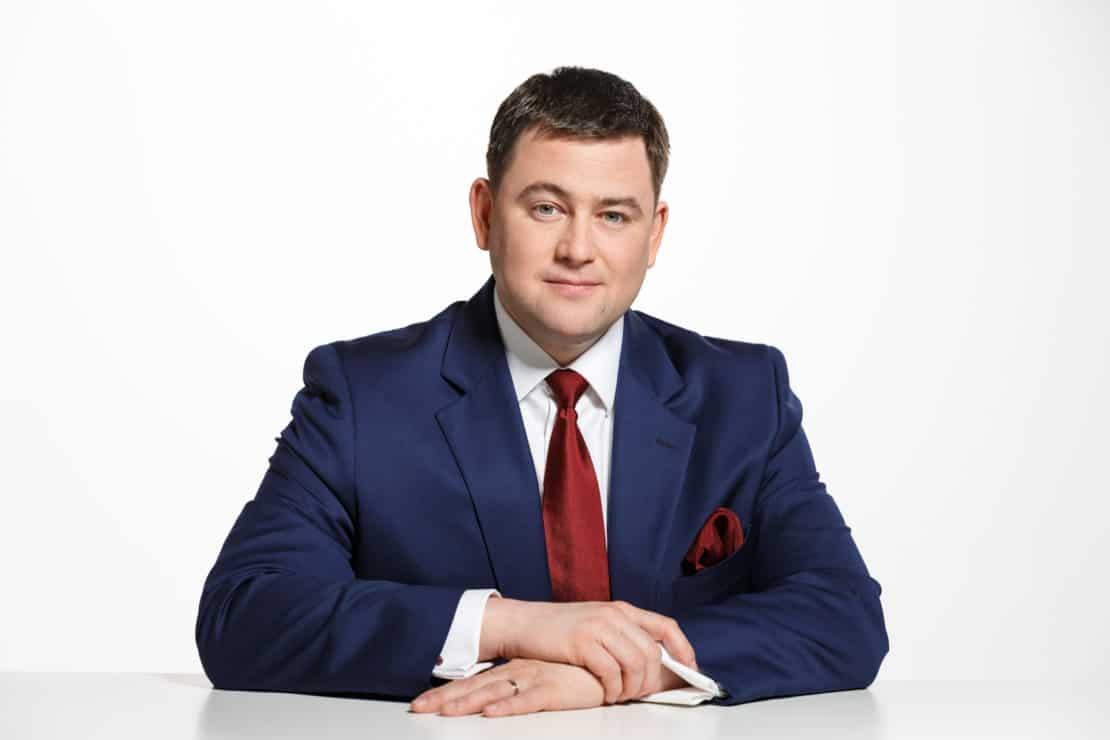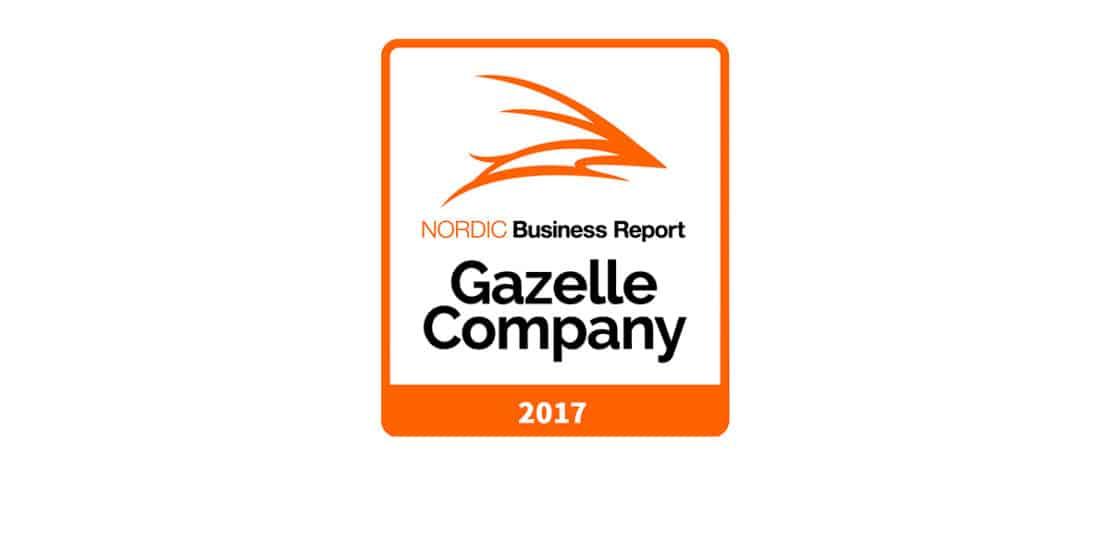17Oct2017
In 1994, a 16-year-old boy raised eyebrows when he walked into a small bank in central Tallinn and told the staff that he wanted a job. By coincidence, he bumped into a senior-level bank manager with whose son he had played tennis. “Robert, what are you doing here?” the manager asked. “I want a job,” came the reply. “Are you crazy?” was the initial response, but which soon led to: “let me talk to some of the senior managers responsible for hiring.” This is how Robert Kitt, the current CEO of Swedbank Estonia, landed his first job.
Having started at Swedbank Estonia in 1998 as a money market fund manager, he rose to the top position in 2015. He is also currently a professor at the University of Technology in the Estonian capital, where he researches finance and complex systems analysis.
Nordic Business Report: You’ve received a lot of praise for your leadership qualities, and have been listed as one of Northern Europe’s Top 20 Responsible Leaders by Nordic Business Report. How do you feel about these accolades? Do you think they have always been deserved?
Robert Kitt: I prefer to think that I was chosen for what I and my team do and how we do it, not for my apparent merits. Certainly, it is an honor to receive a nomination. Many of us have been working for the company [Swedbank Estonia] for a long time, since the 1990s. Our personal accomplishments, as well as my own, are certainly amplified by the belonging to the great business organization that our bank is.
NBR: You’ve grown to the position of CEO of a major bank. Not so many managers can say the same…
RK: Well, I guess I am lucky, and objectively, I believe I have a perfect match with the bank’s pronounced values and missions. If we go a little further, I guess I need, like when one is playing basketball, to have a minute’s time-out and wade into the complex systems analysis that I now research and teach.
I believe that everything around us can be described using complex systems, from natural phenomena like earthquakes and storms to the financial sector and the social sciences.
One of my favorite writers is Albert-László Barabási who is of Romanian, Hungarian and American descent. He’s researched the subject very profoundly. The bottom line is that everything, including airport sizes, wealth distribution etc., is complex.
What does it mean?
It means that a small or an incremental event can have an overwhelming effect and outcome. In other words, small things or seemingly unimportant decisions can have a large impact and make a big difference, whereas plenty of the others have no influence and make no difference at all.
In modern society, with the power of the internet, it is the web that converges and connects us. Yet, the situation is tricky as it brings together people who tend to like each other. To find different people is getting harder and harder, although some may find it hard to believe.
Likewise, there are a lot of different people in society with all the unattended inequalities among them. We see that individual decisions matter more and more, and, last, there is this embedded approach that the winner takes all.
My firm belief is that with society existing within complex systems, it is, and will become, harder and harder to predict its future. That’s why it is very important to pay attention to every detail and, at the same time, to complex systems.
To return to your original question, the philosophy and business model of the bank I run reflects my own mentality. It is a bank for everyone. Most Estonians have an account with us, and we have to work and cater to everybody, be they an entrepreneur, a student, or the owner of small business. As a researcher of complex systems analysis, I am convinced this is the only way to succeed in modern society, especially in a small country like Estonia or Lithuania.
NBR: How is banking changing? And how do you change the bank that you steer?
RK: Basically banking is the same as it was 100 years ago. There was a famous Italian journalist, Luigi Einaudi, who fled Italy in 1926 and returned to become the governor of the country’s central bank, and later, the second president of the Republic of Italy. A century or so ago he wrote: “If industrialists have to own their materials, machinery, processes, and clients, then a banker has to know all of it as well. And all the other industries, too, because you give out other people’s money.”
Just like any other mother out there, mine has to be comfortable with the bank she uses. She has entrusted her money with it for the same reason. I have to do everything I can to ensure that she can take it back anytime she wants.
Industries and their clientele have changed and are changing rapidly, but the banking sector moves little in response to major industrial changes.
Each week, we receive 20,000 personal visits to our bank branch, we answer as many phone calls at our consultation center, and over a million people log in to Swedbank Estonia’s e-banking system. At the core is the same principle, namely, keep money that’s entrusted to you safe.
To answer your question, the personal contribution I’ve made at the bank is based on the aforementioned complex systems. For me, every employee is just as important as the clients and the shareholders. I call it a ‘sacred triangle’.
Two years ago, we began the tradition of devoting one of our free days for charity work, be it cleaning a children’s playground or helping the needy. We don’t have any guidelines for the charitable activities our people get involved in. All perform with a good spirit for the public cause. Personally, I’ve helped with the arranging of firewood, chopped to heat a small Lutheran church situated between Tallinn and Parnu during the winter.
NBR: Nice! Has borrowing and lending returned to the levels that brought on the 2008 financial crisis?
RK: No, they have not. In fact, the volume of issued loans is twice smaller than the portfolio was in 2008.
NBR: Is this due to regulations by the Bank of Estonia?
RK: No. There are some constraints for sure, but they are in line with what all major banks do anyway. The self-regulation mechanism of banks has strengthened since the economic crisis. Interestingly, although borrowing is less robust, there are a lot of savings in people’s accounts. In Lithuania, for example, the volume of deposits is much larger than that of loans.
It means people have money. Not invested in stocks, its yield is zero, more or less, but it is safe. And with high prices, it is like a mathematical magic trick. If you put that zero as the baseline of the year of 2010, then the yield soars to between 50 and 100 percent. But if you put the baseline to the level of 2007 or 2006, the yield hovers at zero. Meanwhile, salaries have risen an average of 15 percent during this period.
NBR: The head of Lithuania’s Central Bank, Vitas Vasiliauskas, recently warned of possible signs of the economy overheating. Do you think there is something to worry about within the Baltic economies?
RK: The job of central bankers is to anticipate and ring the alarm bell before anyone starts talking about risks.
Of course, there is something to think about for all.
In the last six years, salaries have grown from between five and seven percent, although company profits in Estonia have edged down from 2014-2016. It’s clear it cannot go on like this forever. With the trend deepening, companies will simply run out of money. Unless they find new markets and boost their sales, the risk of getting into a lot of trouble increases. Luckily, up until now, entrepreneurs have done a pretty good job addressing the fluctuations and mitigating the possible fallout.
The second thing central bankers watch for is real estate prices. The construction boom is felt in Tallinn, Riga, and Vilnius, the capital cities, with the total number of new flats now twice higher than it was five years ago.
NBR: Can you please stack up the Baltic States’ banking sectors and the economies?
RK: Banking is the reflection of an economy. What the economies within the three Baltic States share are their considerably small size. Yet, what makes Estonia stand out among the three is its closeness to Finland, geographically, culturally, and economically.
With emigration being the region’s biggest issue – all the others being curable, I believe – Estonia is luckier than its neighbors due to the ‘Finland factor’.
When the Lithuanians and Latvians leave to work in the UK or elsewhere, the Estonians take a ferry to Helsinki. At the same time, of the three, Estonia is the most open in terms of investments, which is both good and bad.
It is good because sellers can charge higher margins and sell more. International competition can be met better, and so on. But this openness is bad when it comes to a recession. When the Western and Scandinavian economies picked up the pace in the wake of the 2008-2010 downturn, the recovery of the Finnish economy was much slower, which has certainly had a negative effect on the Estonian economy. To sum it up, due to the proximity to Finland, Estonia is more open to capital markets but is also more prone to risks.
NBR: Does Swedbank Estonia feel any pressure from the more abundant peer-to-peer lending platforms, which have significantly eased borrowing?
RK: I think FinTechs like to cultivate the idea that banks are old and oppose any new player in the financial sector. I disagree with this notion. In fact, I’d be happy to see more private equity, venture capital, and private crowdfunding money. Why? Because then businesses have more equity and we can cooperate and finance the economy even more. I may sound very conservative, but, again, the deposit holders’ money must be safe.
NBR: Are you willing to take risks being a very responsible banker? To what extent?
RK: First, the biggest risk is to not take a risk at all, meaning you are out of business. However, an unbiased risk has a tendency to backfire and damage the business. I don‘t like uncertainty, to be frank.
However, I see myself as a pretty open-minded man. When it comes to new business models and financing the changing economy, you have to be. Speaking of financing, I find flexibility to be particularly important when financing what I call intellectual capital. We haven‘t yet unleashed the financing potential we have in this regard. A bank is not a venture capital firm. At the end of the day, I have to remember my mother who wants her money to be safe in the bank. In no way can risking multi-million value deposits be justified.



 by:
by: